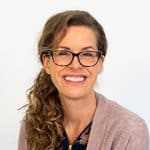Counseling & Mental Health Services
We, the Moraine Park counselors, genuinely enjoy working with students just like you. We understand college life, its challenges, and the toll it can take on your mental health.
MPTC provides personal counseling services for currently enrolled undergraduate students. These services are free, confidential, and available in-person or virtually. MPTC counseling is available to all students 18 years and older; students under 18 will be referred to their high school counselor, community counseling, or online therapy services.
Explore Counseling Services
We can help with many situations, including but not limited to:
- Anxiety and stress management
- Private life circumstances
- Crisis intervention
- Relationship and family problems
- Domestic or sexual abuse
- Academic difficulties
- Support and encouragement
- Classroom issues
- Decision-making and goal-setting
- Financial concerns
- Mental health concerns
- Referral to other services
Connect with an MPTC Counselor
Online: Schedule an appointment by clicking the “Book Appointment” button and entering your information, or email a counselor using the contact info below.
Phone: Call a counselor directly, or call 1-800-472-4554, TTY/VP: Use Relay/VRS for our call center staff to schedule your appointment.
In-person: Go to the Student Services desk on any campus to request an appointment, or ask your advisor or instructor to help you connect with our counselors.
BetterMynd: If you want to schedule online counseling services through BetterMynd, please register with one of our counselors.
Informed Consent
When utilizing counseling services at MPTC, information obtained in the context of a counseling relationship is confidential. The exceptions where student information may be disclosed without your consent and are required by responsible, professional practice and/or by law are:
- Threat to self (suicidal threats or behavior)
- Threats to others (homicide, battery, physical injury)
- Abuse or neglect of a child or vulnerable adult
- Court-ordered subpoenas
- Medical emergency
How to consent to counseling services:
Access the consent form below for your preferred campus location. A counselor will contact you after the form is received.
MPTC Peer Support Group
1/1 Peer Support
- Campus tour/classroom location
- Attend student life events
- Answer general questions about school/campus
Peer Lead Support Groups
- Lead peer groups on various topic you identify with
- Keep conversation going and relate statements if possible
- Schedule and communicate with group members as well as Jed advising staff
Join a Peer Group, Request a Peer Mentor, or become a Peer Mentor
Crisis/Community Resources
24/7 Mental Health & Crisis Support
- Call or text 988
- Start a live chat
- TTY: Use relay, or dial 711 then 988
- Call 988 with a VP number
- Use the 988 Videophone web portal
- Call 988 then press 1
- Text 838255
- Start a live chat
Dial 911
When you or someone else is in immediate danger, a threat to yourself or to others, or in a life-threatening emergency.
Use this list to find a 24/7 crisis phone number for your county.
- Call 211
- Text your zip code to 898211
- Start a live chat
- Search for substance use services
Beaver Dam Area Resources
- Mental health & substance use services for Dodge County residents
- Call 920-386-3913 or send an email
Crisis Intervention
- During business hours, call 920-386-4094 and ask for a crisis worker
- After hours, weekends, & holidays, call 888-552-6642
- Mental health & substance abuse recovery
- Sliding fee scale program
- Assistance completing paperwork & accessing services
- Call 800-942-5330
- Support groups, education, & outreach
- Call 920-212-1341 or send an email
- Mental health & addiction services, in individual & group settings
- Call 920-324-5581
- Extensive list of local resources related to mental health, substance use, domestic violence, and basic needs
- For MPTC help finding resources, call 920-924-3134 or send an email
Fond du Lac Area Resources
- Available 24 hours a day, 365 days a year
- Call 920-929-3535
- Walk-in crisis service available at 459 E. 1st Street, Fond du Lac
- Mental health & addiction services for Fond du Lac County residents
- Call 920-929-3500
- Support groups, education, & outreach
- Call 920-979-0512 or send an email
- Mental health services for all faiths, with a sliding fee scale
- Call 920-923-2550
- Provides a guide for navigating Fond du Lac County’s mental health services in both crisis and non-crisis situations
- Call 920-921-7010
- Mental health & addiction services, in individual & group settings
- Call 920-929-2300
- Extensive list of local resources related to mental health, substance use, domestic violence, and basic needs.
- For MPTC help finding resources, call 920-924-3134 or send an email
West Bend Area Resources
- Available 24 hours a day, 7 days a week
- Call 262-365-6565
- In-person at 333 E. Washington Street, Suite 2100, West Bend
- Mental health & addiction services for Washington County residents
- Walk-in assessments available
- Call 262-335-4600
- Support groups, education, & outreach
- Call 262-339-1235
- Mental health services for all faiths, with a sliding fee scale
- Call 262-346-4700
- Extensive list of local resources related to mental health, substance use, domestic violence, and basic needs.
- For MPTC help finding resources, call 920-924-3134 or send an email
Mental Health Support & Education Resources
- Call or text 988, or start a live chat
- Resources to help navigate life’s challenges, practice self-care and coping, find professional support, and recognize when a friend is struggling and provide support.
- National alliance with hundreds of local affiliates offering local support groups, educational programs, and assistance finding mental health resources.
- Resources for seeking help with mental health, crisis support, finding a warmline, navigating healthcare systems to work with providers, and finding support in your local community.
- Guided search for substance use services by topic and location, and information for 24/7 assistance.
- 24/7 support for LGBTQ+ young people, and resources about coming out, gender identity, sexual orientation, allyship, and more.
- Everyone deserves healthy relationships. Find 24/7 support, local resources, legal assistance, and help identifying abuse and safety planning. Also offers education on supporting survivors, and for people with abusive behaviors to get help changing those behaviors.
- Official Department of Veterans Affairs Mental Health page, with resources for finding care, treatment options, benefits info, and mental health education that addresses the unique stressors and experiences that veterans may face.
These quizzes and self-assessments are not intended to be used as a diagnostic tool. Only a trained medical professional, such as a doctor or mental health professional, can accurately diagnose mental health conditions. These medically-reviewed assessments are designed to help you assess your well-being and determine if you may benefit from a consultation with a professional.
Counseling is a gift you give yourself.
It’s an important part of taking care of yourself.






